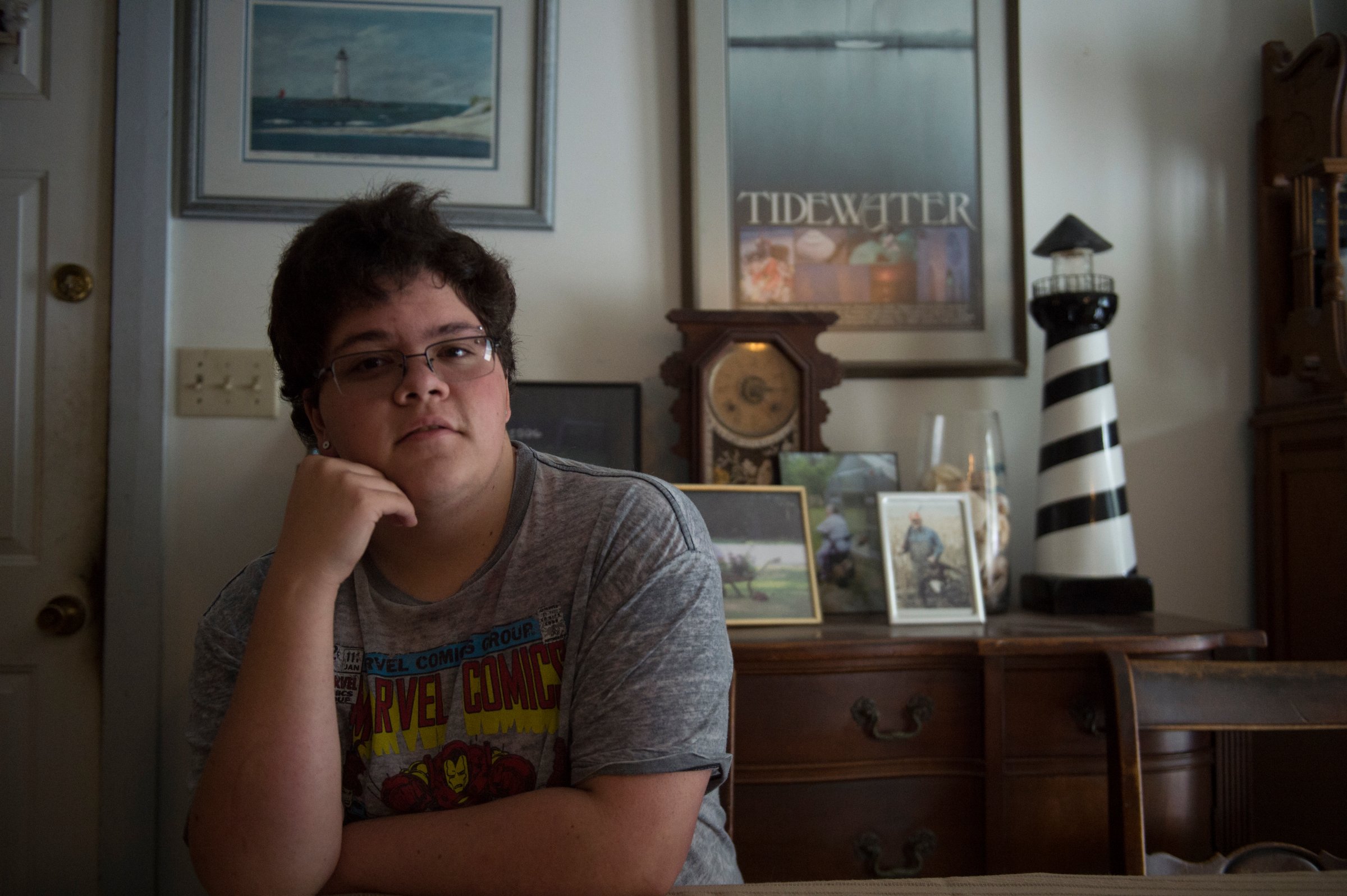
Gavin Grimm, a high school senior in Virginia, was sitting in class when he got the news on Monday morning: the historic moment he had been preparing for later this month at the Supreme Court would not be happening — maybe for several months, maybe for another year or two.
But the 17-year-old, who has spent half his high school career fighting his school board for the right to use the boys’ room at school, sounded calm and defiant on a call with reporters Monday afternoon. “I’m in it for the long haul,” he said. “If it took 10 years, I’d stick with it.”
The Supreme Court was scheduled to hear arguments in Grimm’s case on March 28, but in light of recent actions taken by the Trump Administration, that court remanded the case back to the Fourth Circuit Court of Appeals on Monday. In a joint action, Trump’s Departments of Education and Justice had rescinded guidance issued under the Obama Administration, which said that schools must respect the gender identities of transgender kids or risk running afoul of Title IX, which prohibits sex discrimination in education.
The Fourth Circuit had previously ruled in favor of Grimm, but had not fleshed out an answer to a key question the Supreme Court was poised to consider — when it comes to Title IX, how should that word sex be understood? The court had instead ruled in favor of Grimm by finding that it was reasonable to defer to the Obama Administration’s interpretation of the 1972 civil rights law.
“We conclude that the regulation is susceptible to more than one plausible reading,” the ruling read in part, “because it permits both the [school board’s] reading—determining maleness or femaleness with reference exclusively to genitalia — and the Department’s interpretation — determining maleness or femaleness with reference to gender identity.” The move by the Supreme Court vacated that ruling.
Grimm came out to his family and peers as transgender before the beginning of his sophomore year in Gloucester County and used the boys’ bathroom for several weeks without incident before parents in his community got wind of the situation and spoke out at heated school-board meetings. There, they debated where a student like Grimm belongs, just as state lawmakers have been debating what rights transgender people of all ages have to access bathrooms in the public square.
“They were nightmarish,” Grimm told TIME in a previous interview, “to have members of your community … discussing your genitals in a public forum.”
Eventually, the board passed a proposal that requires students to use bathrooms based on “biological gender.” Though Grimm has since attained a birth certificate issued by the state of Virginia to reflect his male gender identity, that policy — and ensuing court battles over whether it should be enforced — have left him avoiding the restroom at school whenever he can, and using the nurse’s restroom when he cannot. He sees the policy as sending a message “that there’s something about you that deserves to be segregated.”
On the Monday call, organized by Grimm’s counsel at the American Civil Liberties Union, he said the situation has added to the normal stresses of a senior year, “gearing up for college and adulthood.” He will very likely graduate before this question is now settled, though his legal team said that will not make the case moot because there are legal mechanisms to address wrongs that have happened to plaintiffs in the past.
Grimm lamented that younger transgender kids will be left “in limbo for an extended period time” by the Supreme Court’s decision not to hear the case now, though it seems inevitable that the nation’s highest court will issue its first ruling addressing transgender rights in the near future. Several other courts around the country are considering cases that hinge on similar issues, with many lawyers making arguments that transgender people are protected by the Constitution’s promise of equal protection under the law as well as bans on sex discrimination.
Nearing graduation, Grimm also said that his feelings about what the case is about have evolved in the past two years, as fights over transgender rights have moved to the center of America’s culture wars. “It’s not just about bathrooms,” he says. “It’s about the right for trans people to exist in public spaces.”
More Must-Reads from TIME
- Donald Trump Is TIME's 2024 Person of the Year
- TIME’s Top 10 Photos of 2024
- Why Gen Z Is Drinking Less
- The Best Movies About Cooking
- Why Is Anxiety Worse at Night?
- A Head-to-Toe Guide to Treating Dry Skin
- Why Street Cats Are Taking Over Urban Neighborhoods
- Column: Jimmy Carter’s Global Legacy Was Moral Clarity
Contact us at letters@time.com